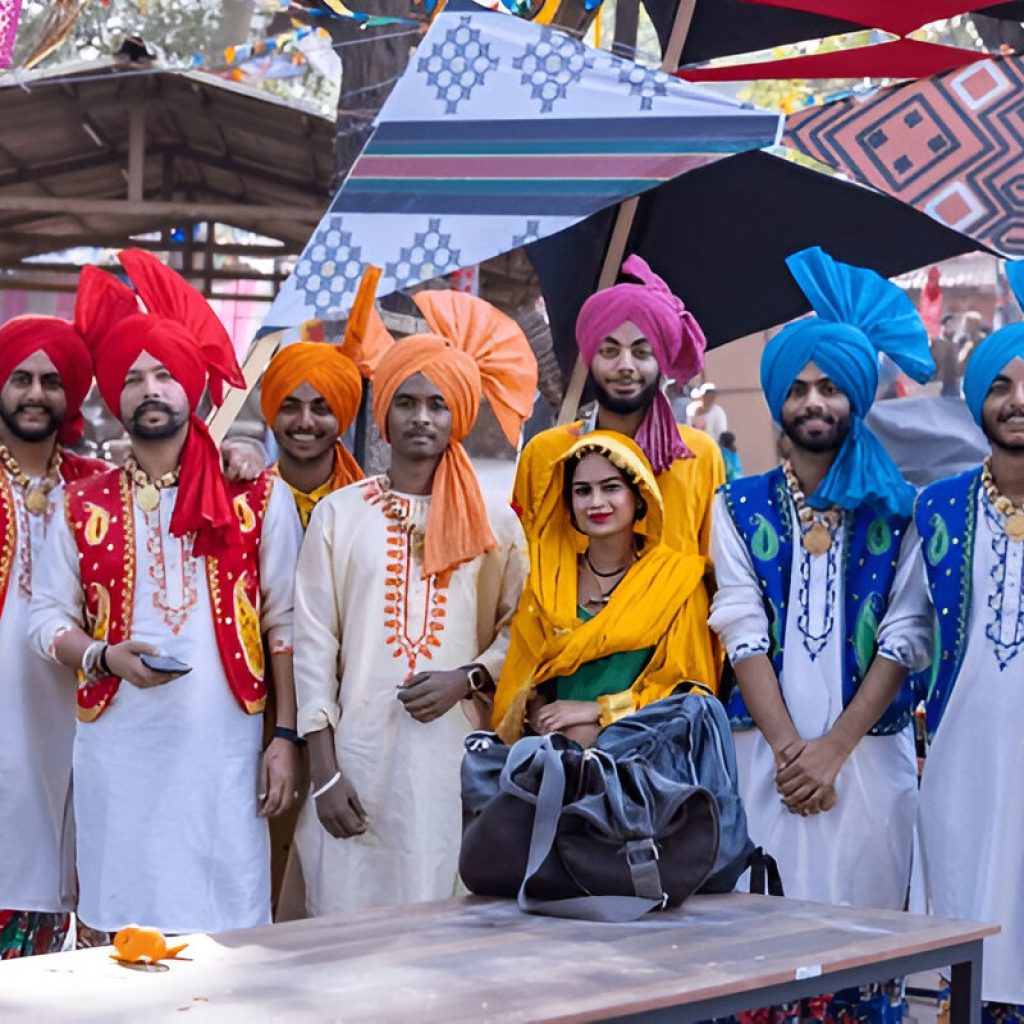
Vaisakhi (Baisakhi) Mela, celebrated on April 13th or 14th, is a vibrant and significant festival for Sikhs and Hindus. It marks the birth of the Khalsa in 1699 by Guru Gobind Singh, the tenth Sikh Guru. The festival includes visiting gurdwaras, participating in colorful Nagar Kirtan processions, and enjoying community fairs filled with traditional music, dance, and festive foods. As a harvest festival, it celebrates the season’s bounty and signifies the Punjabi New Year for many. Vaisakhi Mela beautifully intertwines heritage, history, and the joyous spirit of the harvest.
Vaisakhi Mela Tour in Pakistan
We are excited to offer a special Vaisakhi Mela Tour in Punjab, Pakistan. Where you can blend yourself in the rich culture, history, and festivities of this incredible celebration. Explore vibrant fairs, witness grand processions, and experience the heartwarming hospitality.
Places and Attractions
Prior to independence in 1947, 2 million Sikhs resided in the present-day Pakistan and were spread all across Northern Pakistan, specifically the Punjab region and played an important role in its economy as farmers, businessmen, and traders. Significant populations of Sikhs inhabited the largest cities in the Punjab such as Lahore, Gujranwala, Rawalpindi and Lyallpur (Faisal Abad).
Lahore, the capital of Punjab, was then and still is today the location of many important Sikh religious and historical sites, including the Samadhi of Maharaja Ranjit Singh. The nearby town of Nankana Sahib has nine Gurudwaras and is the birthplace of Sikhism’s founder (Janam Asthan), Guru Nanak Sahib. Each of Nankana Sahib’s gurdwaras are associated with different events in Guru Nanak Dev’s life. The town remains an important site of pilgrimage for Sikhs worldwide. Most of the Sikh Population still residing in Nankana Sahib.


The Sikh Yatra Tour in Pakistan is a remarkable journey that allows travelers to explore the sacred Sikh sites in the country, immersing themselves in the rich history, spirituality, and cultural heritage of the Sikh faith. This tour offers a unique opportunity to visit revered gurdwaras, pay homage to historical landmarks, and experience the warm hospitality of the local Sikh community. The Sikh Yatra Tour in Pakistan is a profoundly spiritual pilgrimage that invites you to connect with the sacred Sikh sites, immerse yourself in the rich historical and cultural heritage, and witness the vibrant Sikh traditions that thrive in the country. This transformative journey promises a deeper understanding and appreciation of Sikhism as you embark on a path of self-discovery and spiritual growth.
Zufta Travels and Tours is a dedicated travel company that feels truly privileged to host Sikh Yatris (pilgrims) in Pakistan. We view this opportunity not just as a business, but as a meaningful and noble endeavor to facilitate the spiritual journey of our guests. With deep respect for Sikh heritage and values, we are committed to providing seamless and enriching travel experiences, ensuring every Yatri’s visit is both memorable and spiritually fulfilling. At Zufta, we are honored to be part of their sacred pilgrimage and consider it a good deed to serve this vibrant community with warmth and care
Lahore, the capital of Punjab, was then and still is today the location of many important Sikh religious and historical sites, including the Samadhi of Maharaja Ranjit Singh. The nearby town of Nankana Sahib has nine Gurudwaras and is the birthplace of Sikhism’s founder (Janam Asthan), Guru Nanak Sahib. Each of Nankana Sahib’s gurdwaras are associated with different events in Guru Nanak Dev’s life. The town remains an important site of pilgrimage for Sikhs worldwide. Most of the Sikh Population still residing in Nankana Sahib.

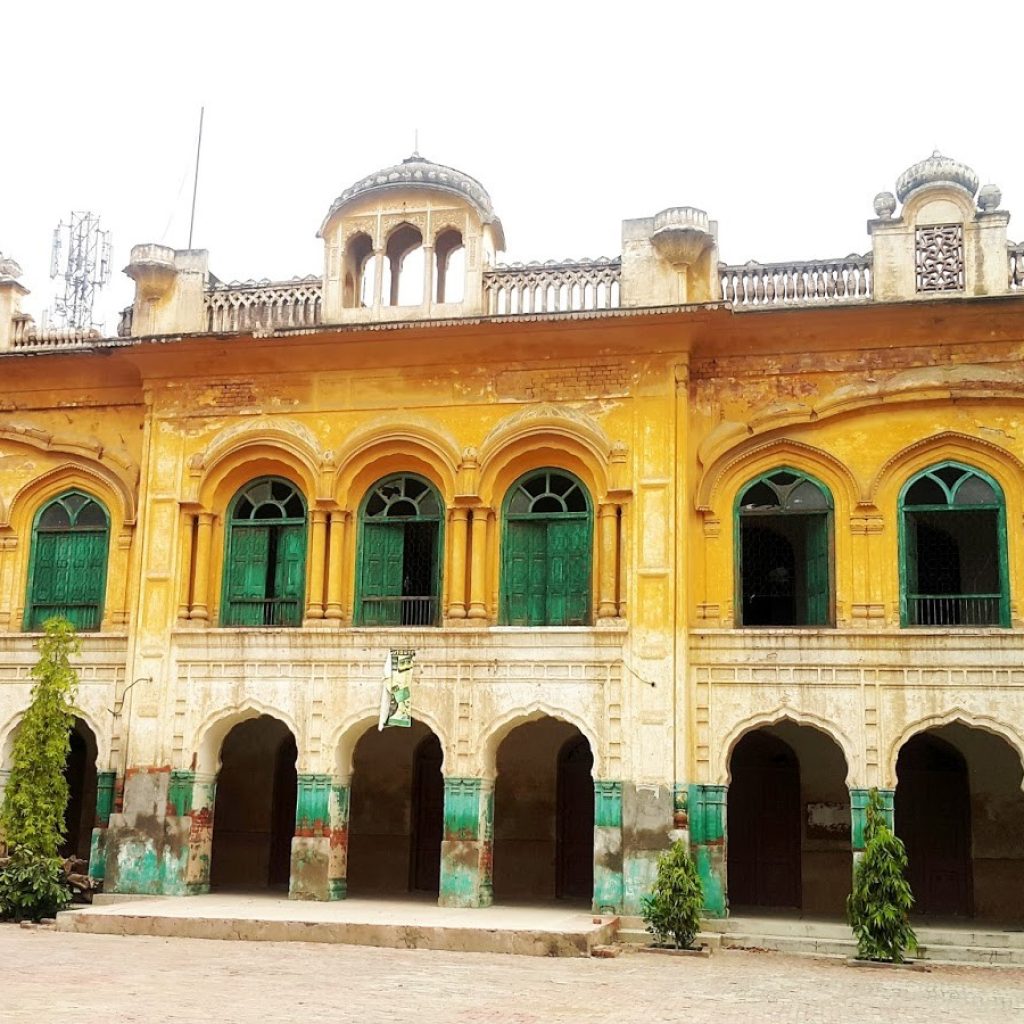
The Gurdwara in Faisalabad, Pakistan, is a historical Sikh temple that dates back to the pre-Partition era, when the city was known as Lyallpur. Established during the British colonial period, it served the spiritual and community needs of the Sikh population in the region. After the Partition of 1947, when most Sikhs migrated to India, the Gurdwara fell into disuse and was repurposed for other activities over time. In recent years, as part of efforts to preserve religious and cultural heritage, the site has drawn attention for its historical significance, with calls for its restoration and recognition as a symbol of interfaith harmony in Pakistan. It remains a testament to the rich multicultural history of Faisalabad
Kartarpur, located in Narowal District of Pakistan’s Punjab province, holds great historical and religious significance as the site where Guru Nanak, the founder of Sikhism, spent the last 18 years of his life. He established the first Sikh commune here in 1522 and worked towards promoting harmony and spiritual unity. The Gurdwara Darbar Sahib Kartarpur, built on the banks of the Ravi River, marks the place of his final resting. After the partition of India in 1947, Kartarpur became part of Pakistan, leaving it inaccessible to most Indian Sikhs for decades. In 2019, the Kartarpur Corridor was inaugurated, allowing visa-free access to Indian pilgrims, fostering goodwill between the two nations and reconnecting Sikhs to this sacred site
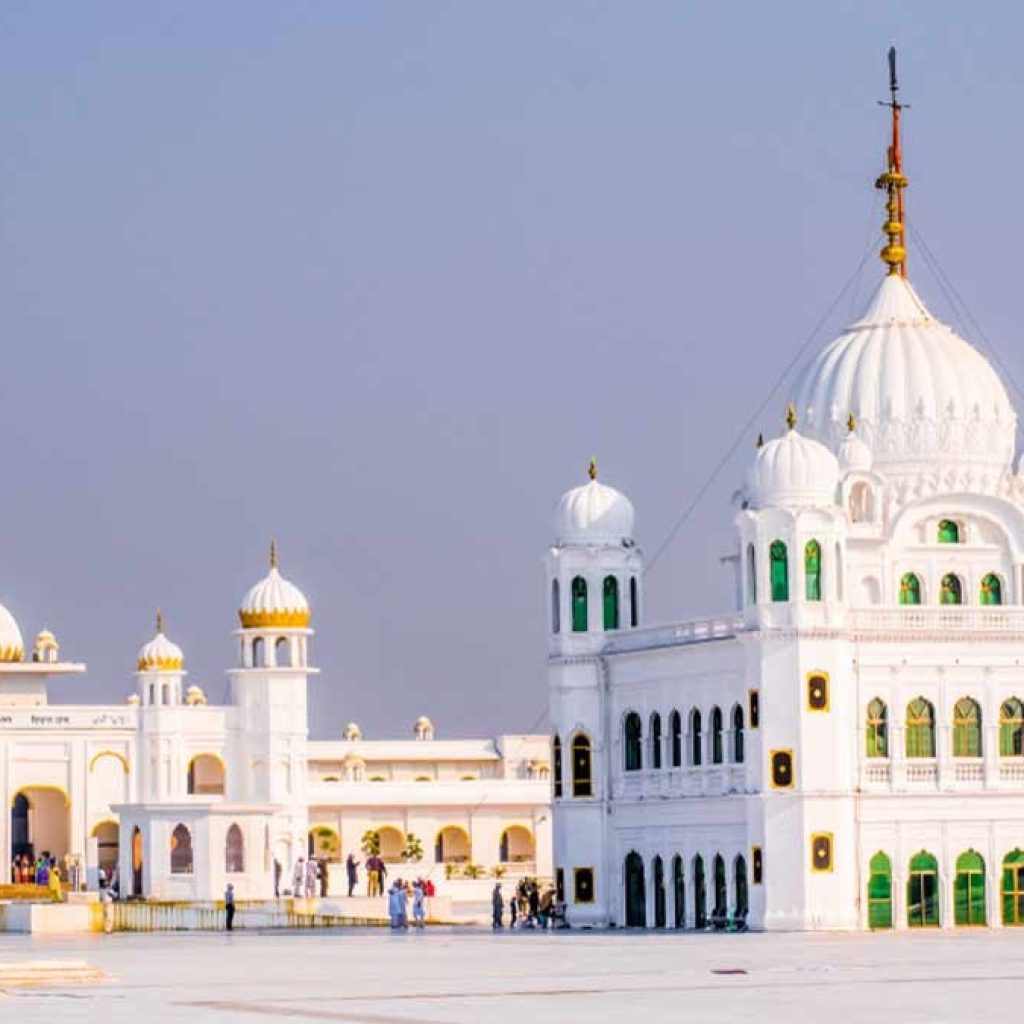
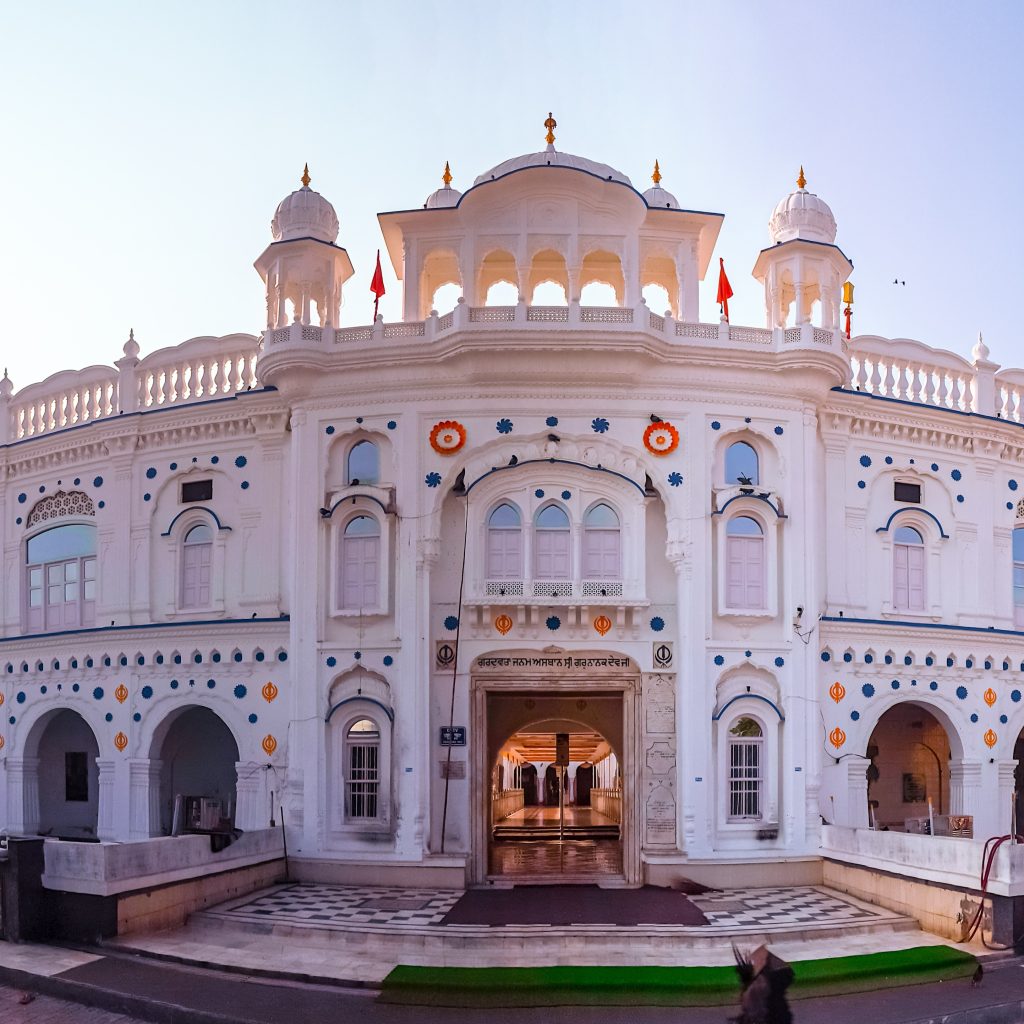
Nankana Sahib, located in Punjab, Pakistan, is a historic city and the birthplace of Guru Nanak Dev Ji, the founder of Sikhism. Originally known as Rai Bhoi Di Talwandi, it was renamed in honor of Guru Nanak. The city holds immense religious significance for Sikhs worldwide and is home to several sacred gurdwaras, including Gurdwara Janam Asthan, marking the site of Guru Nanak’s birth in 1469. During the partition of British India in 1947, many Sikh families migrated to India, but Nankana Sahib remained a prominent pilgrimage site. The Pakistani government has since taken measures to preserve its heritage, facilitating access for Sikh pilgrims, particularly during events like Guru Nanak’s birth anniversary. Today, it symbolizes interfaith harmony and serves as a bridge between Sikhism and Pakistan’s cultural history
The historic site of Panja Sahib, located in Hasan Abdal, Pakistan, is a sacred pilgrimage destination for Sikhs worldwide. It is named after the “Panja,” meaning handprint, believed to be that of Guru Nanak Dev Ji, the founder of Sikhism. According to Sikh tradition, during one of his travels, Guru Nanak stopped at this spot, where a local saint, Wali Qandhari, controlled the water supply. When denied water, Guru Nanak miraculously caused a stream to flow by lifting a rock, leaving his handprint embedded in it. The Gurdwara was built at this site in the 16th century, with significant additions made during the Mughal and British eras. Today, it remains a symbol of harmony and spiritual reverence, attracting thousands of devotees annually.
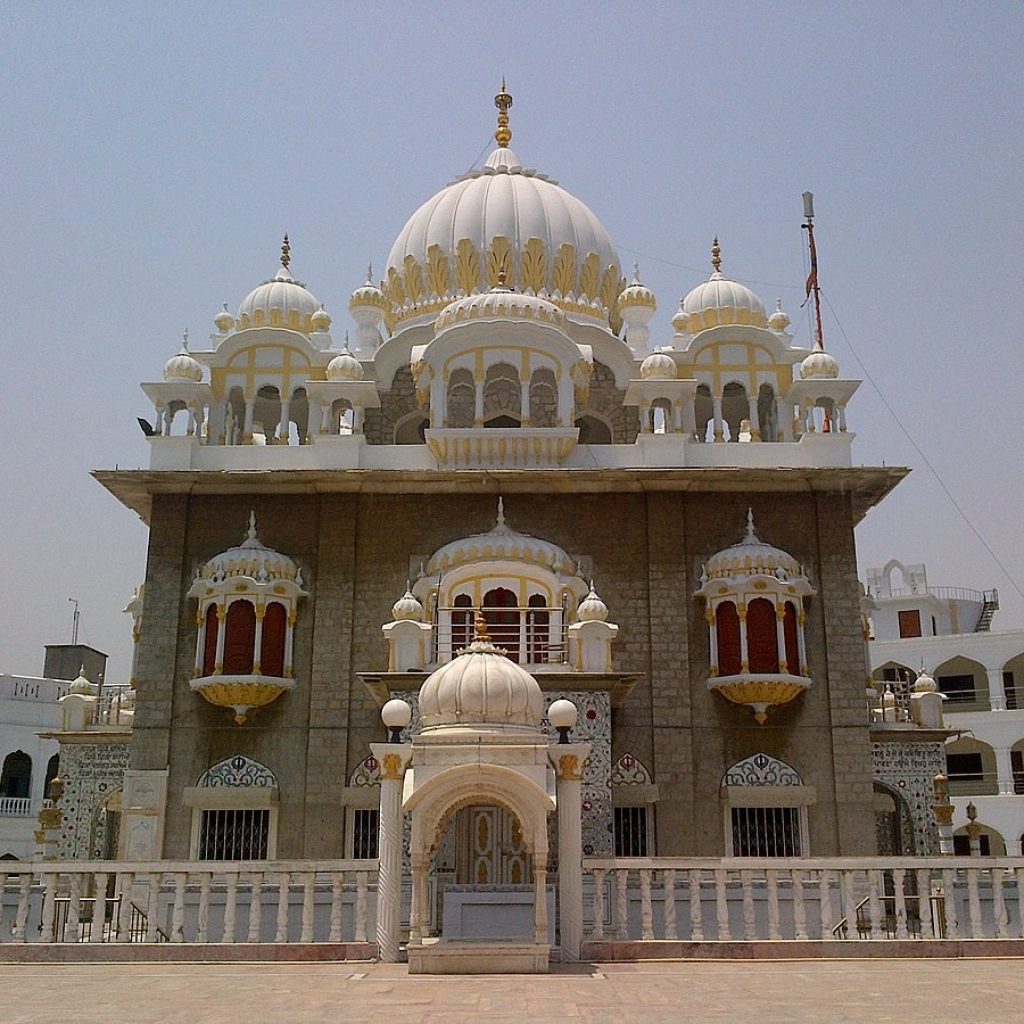
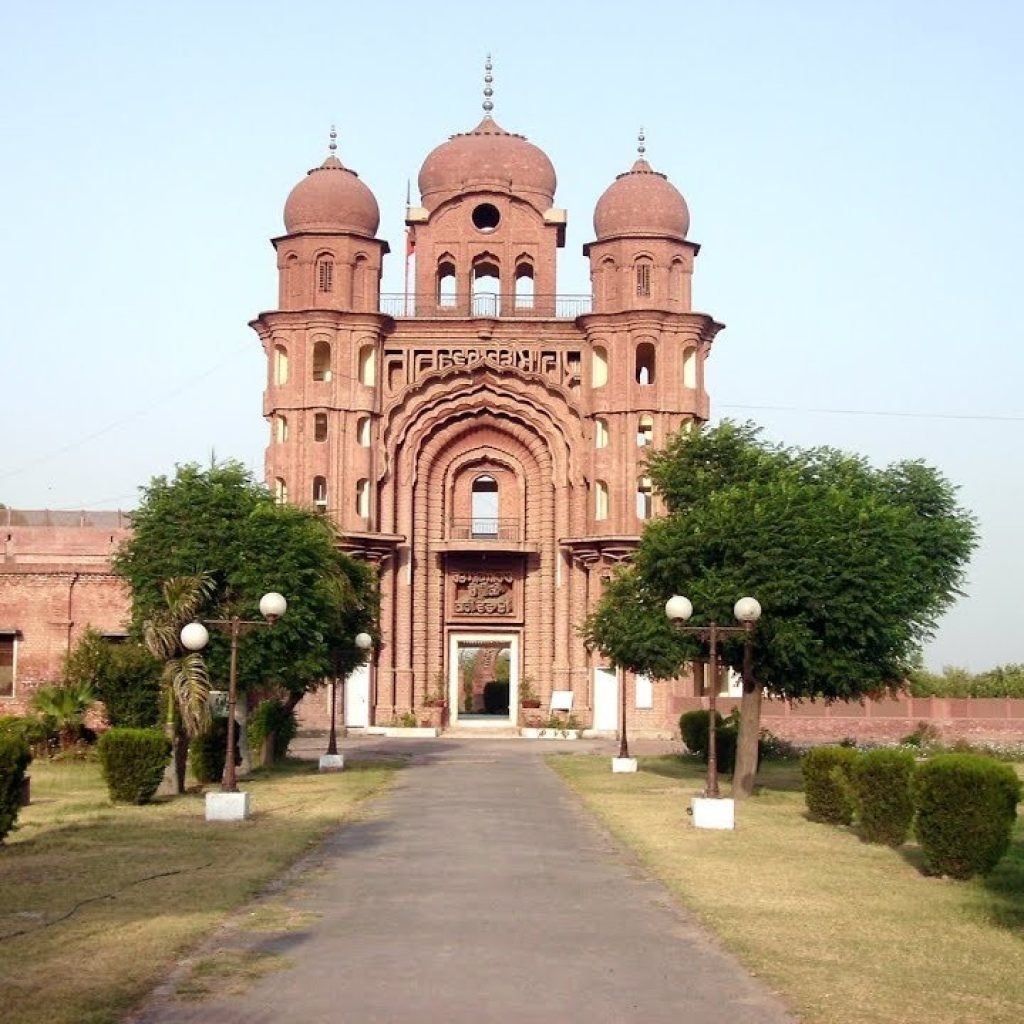
Rori Sahib, located in the district of Gujranwala, Punjab, Pakistan, is a revered historical and religious site for Sikhs. It is associated with Guru Hargobind Ji, the sixth Sikh Guru, who is believed to have visited the area during his travels. The site is named “Rori” (meaning “pebbles” in Punjabi) because the Guru is said to have meditated there on a bed of pebbles as an act of humility. The gurdwara built at Rori Sahib is an important place of pilgrimage, especially during Sikh festivals such as Vaisakhi. This shrine symbolizes peace and communal harmony, reflecting the spiritual legacy of Guru Hargobind Ji in the region. Over time, it has also become a symbol of the shared cultural heritage of Punjab
The gurdwara of Sucha Soda (Farooqabad, Punjab Province, Pakistan.) is another important site associate with the life of Guru Nanak. At the age of eighteen, Guru Nanak Sahib, was not interested in farming and other worldly work. Therefore, his father Mehta Kalu sent him to the city to do business firstly, to engage him in good profitable profession, and secondly his son would be happy all day talking to his clients about his business. On one auspicious day Mehta Kalu called Bhai Mardana to accompany Guru sahib. He gave twenty rupees to them and said, ‘Go with Nanak buy and bring some genuine goods, (most probably salt) and make some profit by selling them. Guru Sahib invested twenty rupees in purchasing food and distributed among them and continued the tradition what we today call ‘Langar’. Many years later, Sikhs built a gurdwara Sacha Sauda in memory of Guru Nanak’s kindness. Over the period of time the site became an important site attracting visitors to pay homage to Guru. Maharaja Ranjit Singh made a land endowment of over 100 acres (250 bighas) to construct the building of Gurdwara. The gurdwara building is built in the traditional architectural style of the Sikhs.
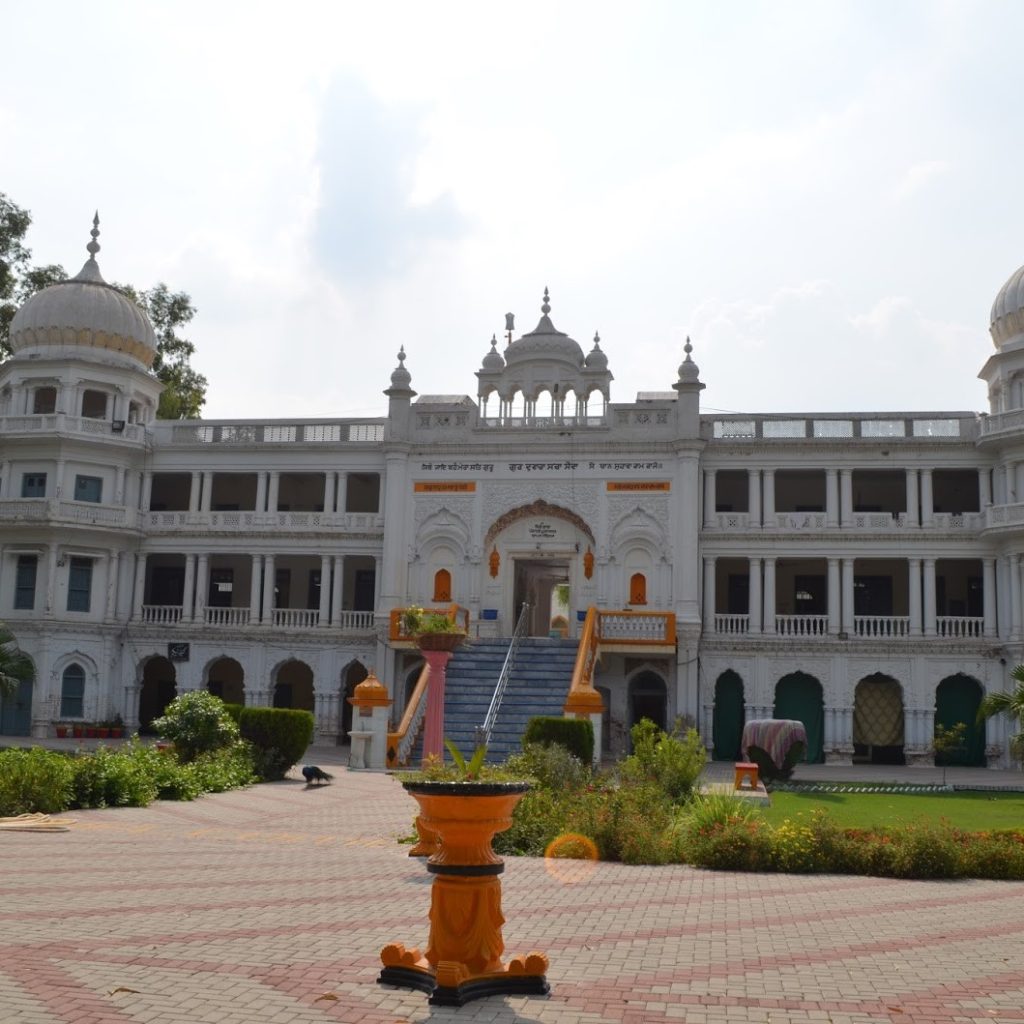
WhatsApp Us for more info and guidance